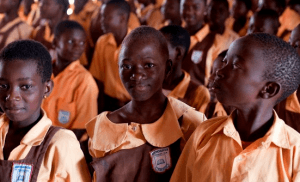Countries in sub-Sahara Africa won’t also achieve 2030 global education targets – UNESCO
 Countries of the world won’t be able to achieve their own education targets by 2030. Sub-Saharan African countries won’t also be able to meet their Sustainable Development Goal 4 (SDG 4) of ensuring inclusive and equitable quality education and lifelong learning opportunities for all by 2030, a new report by UNESCO’s Institute for Statistics and the Global Education Monitoring Report has found.
Countries of the world won’t be able to achieve their own education targets by 2030. Sub-Saharan African countries won’t also be able to meet their Sustainable Development Goal 4 (SDG 4) of ensuring inclusive and equitable quality education and lifelong learning opportunities for all by 2030, a new report by UNESCO’s Institute for Statistics and the Global Education Monitoring Report has found.
A press release from UNESCO copied to Ghana Business News says, according to their own benchmarks, countries will not achieve Sustainable Development Goal 4 (SDG 4) of ensuring inclusive and equitable quality education and lifelong learning opportunities for all by 2030.
The report titled, National SDG 4 benchmarks: fulfilling our commitments, compiles the findings from the culmination of a two-year global process convened by UNESCO, the release said.
It notes that participating countries identified their targets for 2025 and 2030 relative to six key SDG 4 indicators on: early childhood education attendance; school attendance; completion; minimum proficiency in reading and mathematics; trained teachers; and public education expenditure.
The report stated that the commitment made was to accelerate progress between now and the deadline relative to the rate countries achieved from 2000-2015.
The findings show that even if countries reach their benchmarks, the world will still fall short of the ambition set out in SDG 4, it added.
The report indicates that according to their plans, all regions will meet or be very close to achieving universal primary education, however.
But challenges, will remain in sub-Saharan Africa where 8 per cent of children of primary school age are still predicted to be out of school in 2030 (down from 19 per cent currently). By 2030, countries in sub-Saharan Africa expect to be able to achieve a reduction in the rate of out-of-school upper secondary age youth from 47 per cent to 32 per cent; those in Central and Southern Asia expect to reduce their rate from 32 per cent to 17 per cent, it says.
The report notes that in North Africa and Western Asia, the benchmarks show that countries believe they can reduce the rate from 28 per cent to 14 per cent and from 19 per cent to 11 per cent in Latin America and the Caribbean.
The process has delivered a reality check with regards to the goal of universal completion of secondary education by 2030, which no region is on track to achieve. Completion rates are expected to land at 89 per cent at lower secondary and 72 per cent at the upper secondary level by the deadline, it added.
“The next step must be to encourage all countries to submit benchmarks and determine which policies to prioritise before 2030,” it says.
The report shows that according to their own measures, Latin America and the Caribbean and Central and Southern Asia are on course to achieve universal early childhood education. Sub-Saharan Africa, North Africa and Western Asia will not achieve this goal, where it is estimated that roughly two in three children will be enrolled in early childhood education by 2030 (up from less than half currently).
Countries are however, according to the report, the least confident about the ability to accelerate progress in mathematics skills: by 2030, globally, benchmarks show that an expected 26 per cent will still not be able to do basic mathematics in the early grades, 32 per cent at the end of primary and 34 per cent at the end of lower secondary.
The percentage of trained teachers is expected to increase between 2015 and 2030 to over 90 per cent in each level of education. The fastest growth is expected at the pre-primary education level, from 70 per cent to 94 per cent. Still, by the deadline, countries in sub-Saharan Africa expect that, despite their best efforts, over a quarter of teachers at the pre-primary level will remain untrained, it says.
